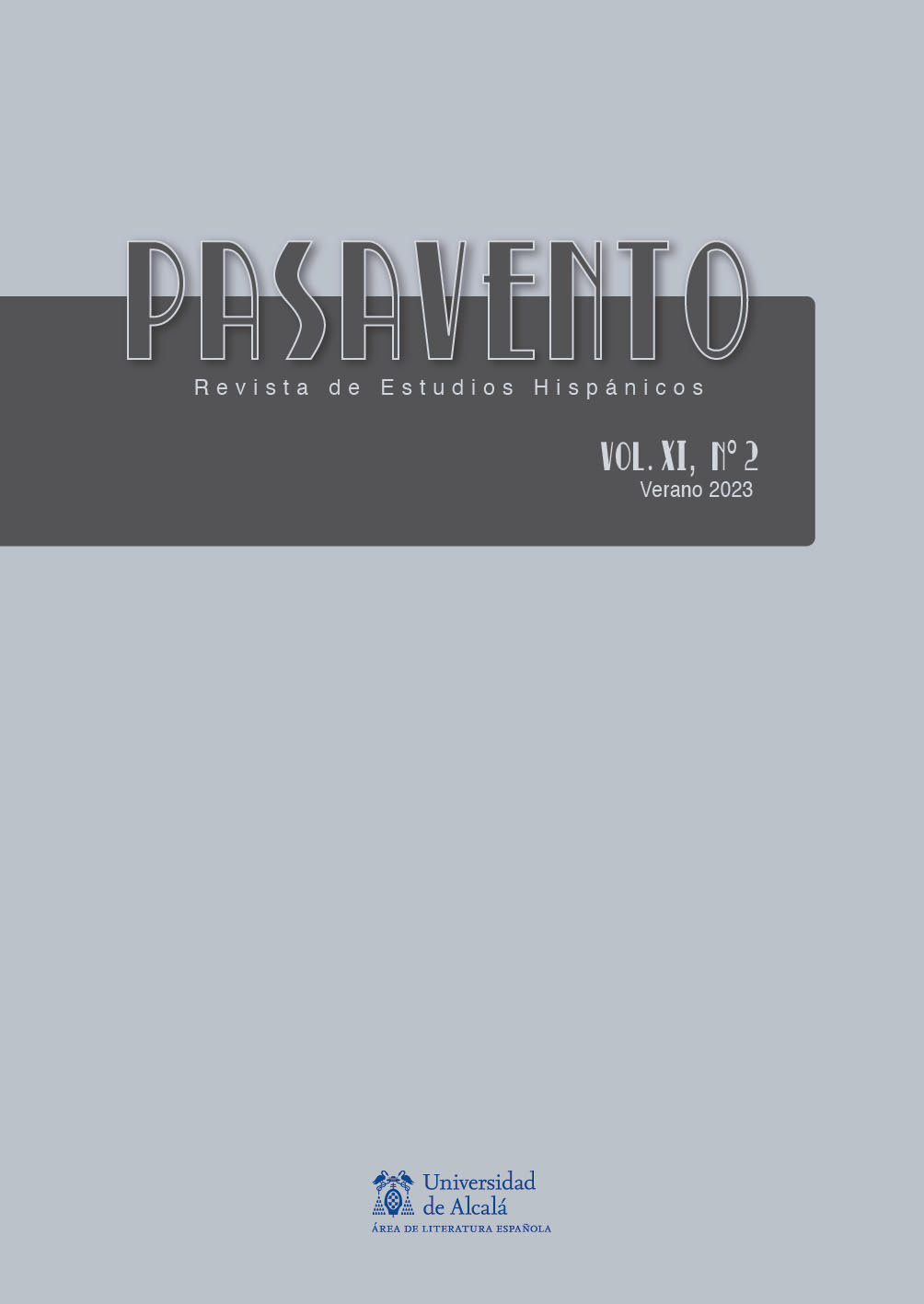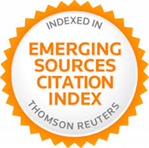Motherhood and Suicide: a Genealogy of Scriptures about how to Subvert the Weight of Guilt
DOI:
https://doi.org/10.37536/preh.2023.11.2.1760Keywords:
Filiation and Literary Genealogies, Suicide Writers, Social Motherhood, DiariesAbstract
How does the myth of the suicidal writer address with precepts regarding motherhood? And how do Latin American suicidal writers dialogue with other Anglo-Saxon suicidal writers who are mothers (Plath and Sexton) or non-mothers (Woolf) in their effort to place their literary motherhood above the filiative one? This paper tunes into the call to be free from the tyranny of children within a regime where motherhood is placed at the center of the family (Meruane, 2015), and must be assimilated as the broader matrix from which to understand gender conflicts (Rich, 2010). Antonia Rivas Mercado receives the stigma of “social motherhood” (Vicuña, 2001) as the ultimate responsibility assigned to women within her moral constitution: tribulations that she exposes in her Diario de Bordeos (1930-1931). Later, Teresa Wilms Montt rebels in her Diarios íntimos (1906-1921) against the mandates of the genre. Her fourth diary will coincide with the re-encounter with her daughters, from whom she grew apart in her constant need to run away. Such an imperative of estrangement, common to both authors, finds resonance in Violeta Parra, whose life and death is re-interpreted in Violeta se fue a los cielos (2006), a biography in which her own son Ángel outlines a maternal ideal -frustrated and challenged- that he attributes to her: the omnipresence of an ancestral mother.
References
Alonso, María Nieves (2011). “La soberanía sobre la muerte: El caso Violeta Parra”. Revista Atenea, 504: 11-39. DOI: https://doi.org/10.4067/S0718-04622011000200002
Andrés González Cobo, Ramón (2015). Semper dolens. Historia del suicidio de Occidente. Barcelona: Acantilado.
Ariz Castillo, Yenny (2016). “La décima LVIII de Violeta Parra: un recorrido circular”. Orbis Tertius, XXI(23): e006. <https://www.orbistertius.unlp.edu.ar/article/view/OTv21n23a06/7639> (1 de julio de 2020).
Blanchot, Maurice (2005). El libro por venir [1959], trad. Cristina De Peretti y Emilio Velasco. Madrid: Trotta.
Cixous, Hélène (1995). La risa de la medusa, trad. Ana María Moix. Barcelona: Anthropos.
Deleuze, Gilles y Félix Guattari (2007). Kafka. Por una literatura menor [1975], trad. Jorge Aguilar Mora. Ciudad de México: Era.
Deutsch, Hélène (1973). La psychlogie des femmes. 2/ Maternité [1945], trad. Hubert Benoit. París: Presses Universitaires de France.
Franco, Jean (1994). Las conspiradoras. La representación de la mujer en México. Ciudad de México: Fondo de Cultura Económica.
K. Le Guin, Ursula (2007). “La hija de la pescadora” [2001], in Maternidad y creación. Lecturas esenciales, ed. Moyra Davey, trad. Elena Vilallonga. Barcelona: Alba Editorial.
Kottow, Andrea y Ana Traverso (2020). Escribir & tachar. Narrativas escritas por mujeres en Chile (1920-1970). Santiago de Chile: Ediciones Overol.
Kristeva, Julia y Catherine Clément (2000). Lo femenino y lo sagrado, trad. Maribel García Sánchez. Madrid: Instituto de la Mujer / Universitat de València.
Lazarre, Jane (2018). El nudo materno [1976], trad. Elena Villalonga. Barcelona: Editorial las afueras.
López, Iraida H (2010). “Al filo de la modernidad: las décimas autobiográficas de Violeta Parra como literatura”. Anales de literatura chilena, 13: 131-150.
Luongo, Gilda (2019). Paso de pasajes. Crítica feminista. Santiago de Chile: Tiempo Robado Ediciones.
Macón, Cecilia (2017). “La visceralidad como activismo”. 452ºF: Revista de Teoría de la Literatura y Literatura Comparada, 17: 191-205.
Ngai, Sianne (2015). “Visceral Abstractions”. GLQ: A Journal of Lesbian and Gay Studies, 21(4): 33-63. DOI: https://doi.org/10.1215/10642684-2818648
Oporto Valencia, Lucy (2011). “El ojo muerto de Violeta: el Gavilán en Violeta se fue a los cielos (2011), de Andrés Wood”. Revista NEUMA, 1(5): 88-120. <http://musica.utalca.cl/DOCS/neuma/2012-1/Neuma_5_88-121.pdf> (1 de julio de 2020).
Oyarzún, Luis (1967). Lo que no se dijo. Teresa Wilms. Santiago de Chile: Editorial Universitaria.
Miranda, Carolina (2008). “Los Diarios de Teresa Wilms Montt”. LOGOS, 18(1): 4-16.
Parra, Ángel (2006). Violeta se fue a los cielos. Santiago de Chile: Catalonia.
Plath, Sylvia (2016). Diarios Completos [2000], ed. Karen V. Kukil, trad. Elisenda Julibert. Barcelona: Alba Editorial.
Rich, Adrienne (1996). Nacemos de mujer. La maternidad como experiencia e institución [1986], trad. Anna Becciu. Madrid: Cátedra / Instituto de la Mujer.
Rich, Adrienne (2007). “Cólera y ternura” [2001], in Maternidad y creación. Lecturas esenciales, ed. Moyra Davey, trad. Elena Vilallonga. Barcelona: Alba Editorial.
Rich, Adrienne (2010). Sobre Mentiras, secretos y silencios, trad. Margarita Dalton, Madrid: horas y HORAS.
Rivas Mercado, Antonieta (2014). Diario de Burdeos, edición crítica de Cynthia Araceli Ramírez Peñaloza y Francisco Javier Beltrán Cabrera. Ciudad de México: Universidad Autónoma del Estado de México / Siglo XXI Editores.
Rubin Suleiman, Susan (2007). “Escritura y maternidad” [2001], in Maternidad y creación. Lecturas esenciales, ed. Moyra Davey, trad. Elena Vilallonga. Barcelona: Alba Editorial.
Sexton, Anne (2015). Anne Sexton: Un autorretrato en cartas, ed. Linda Grey Sexton y Louis Ames, trad. A. Catalán, B. Clark, J.D. González-Iglesias y A. Rebolledo. Madrid: Ediciones Linteo.
Vicuña, Manuel (2010). La belle époque chilena. Alta sociedad y mujeres de élite. Santiago de Chile: Catalonia.
Wilms Montt, Teresa (2015). Diarios íntimos. Santiago de Chile: Alquimia.
Wood, Andrés (dir.) (2011). Violeta se fue a los cielos. Santiago de Chile / Buenos Aires / París: Andrés Wood Producciones S.A. / Maíz Producciones S.A. / BG Televisión, 110 minutos.
Woolf, Virginia (2018). El Diario de Virginia Woolf, vol. 2, 1920-1924 [1978], trad. Olivia De Miguel. Madrid: Tres Hermanas.
Downloads
Published
How to Cite
Issue
Section
License
Copyright (c) 2023 Constanza Ternicier

This work is licensed under a Creative Commons Attribution 4.0 International License.








